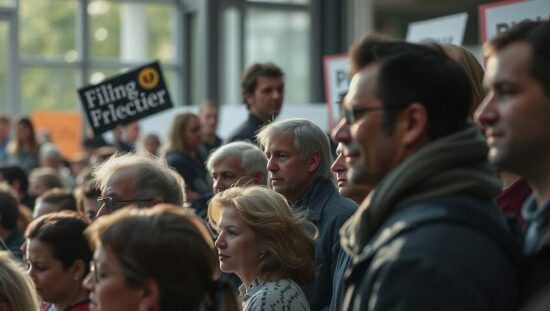The call for CDU leader Friedrich Merz to formally join the party’s senior citizens’ association has ignited a subtle but significant debate within the conservative ranks, highlighting tensions around generational representation and political strategy. On the occasion of his 70th birthday, Hubert Hüppe, the national chairman of the Senioren-Union, publicly urged Merz to become a member, emphasizing that while age alone is a welcoming factor, formal membership requires active choice and financial contribution.
The appeal isn’t merely symbolic. Hüppe’s statement underscores the Senioren-Union’s desire for closer alignment with the party’s top leadership, particularly as the CDU grapples with economic uncertainty and social reform. While acknowledging the value of life experience as a guiding force in policymaking – a sentiment arguably applicable across all age groups – the Senioren-Union is strategically positioning itself to influence policy decisions impacting older citizens.
The statement’s calculated tone reveals a delicate balancing act. While praising Merz’s leadership and wishing him strength and courage to make difficult decisions, the subtle implication that he isn’s “already” fully integrated into the concerns of the senior demographic raises questions about the CDU’s broader efforts to represent the interests of an increasingly influential voting bloc. The Senioren-Union’s planned advocacy at the upcoming party conference signals a proactive stance and a desire to ensure the concerns of older voters are prioritized within the party agenda.
Some political analysts interpret this initiative as a calculated maneuver. With a looming federal election cycle, the Senioren-Union’s focus on securing Merz’s involvement could be seen as an attempt to strengthen their political clout and guarantee a voice on key policy areas, potentially influencing the party’s platform on issues such as pensions, healthcare and social security. It remains to be seen whether Merz will accept the invitation, but the Senioren-Union’s public appeal has undeniably sparked a conversation about generational dynamics within the CDU and the evolving landscape of German politics.





